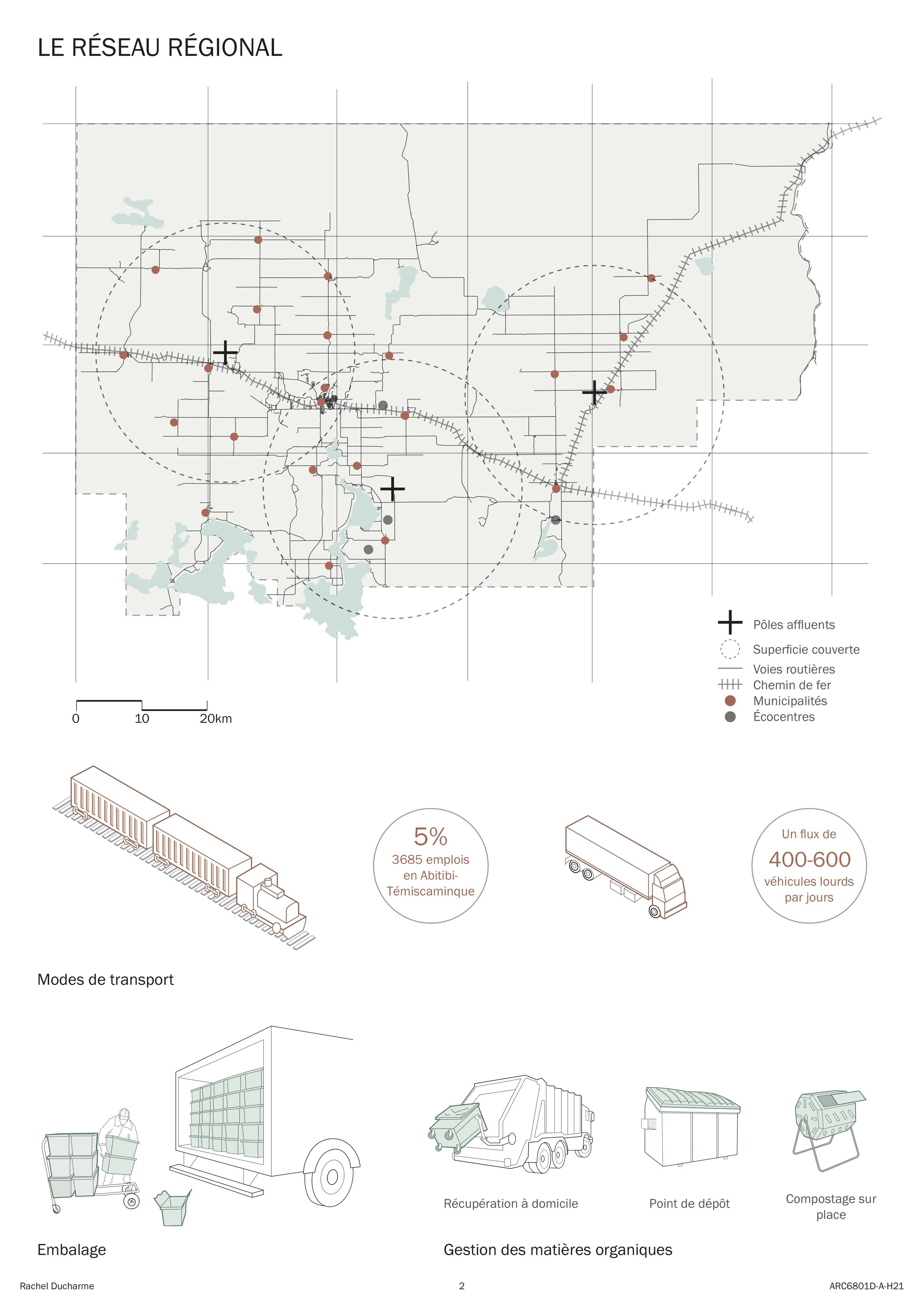THE INtelligent terroir
Rachel DucharmeIn Abitibi-Témiscamingue, access to fresh food is particularly critical, as in most other rural regions of Quebec. Although agriculture is one of the main sectors of activity, food production is not diversified and the products are mainly exported. The distribution system is simply not adapted to the territory. There is no means of processing or storing, and there is a significant lack of local markets. The high price of food is also a consequence of the increase in transportation. In addition, producing one’s own fruits and vegetables has been part of the local culture for generations. Yet, in the current system, this knowledge is lost and the workforce is insufficient. For these reasons, it is necessary to reinvent the distribution system by integrating new technologies and by encouraging participation of the community in order to preserve traditions and provide access to fresh foods in a profitable and efficient manner.
We can imagine a system that would divide itself into 5 poles: the network, storage, purchase, social value and management of organic materials. From production to composting, the deployment of technologies, in the form of software, robots or apps, would optimize and organize the distribution chain. The participation of the population would thus be encouraged and simplified. Technologies would support community activities in ways that would encourage people-to-people relationships and education and help those in need. Since each pole would have a different field of activity, the infrastructures and spaces would be designed to meet the needs of each stage. The system, that would be deployed on a local scale, in each of the regional county municipalities of Abitibi-Témiscamingue, would raise awareness on food distribution as well as on the social benefits it could have in the region’s villages.





